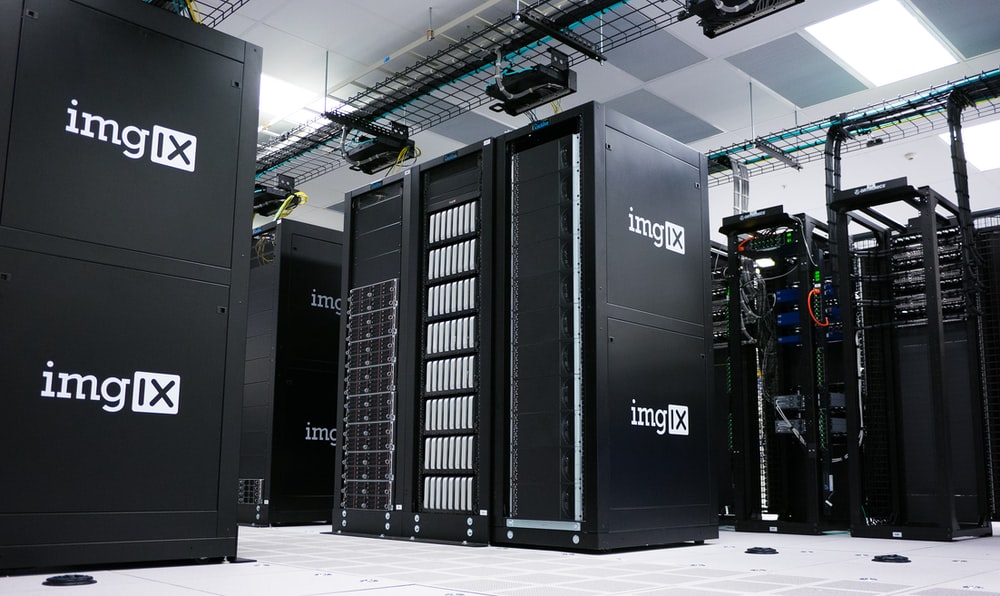
Cloud Server
Credit: Unsplash
There are a lot of factors to consider before getting Cloud VPS hosting. One of the most important is what you plan on using your VPS for. If you need a server for a small website or blog, then a shared hosting plan may be more suitable for your needs. Shared hosting plans are cheaper and can be just as effective for smaller websites.
If you need a more powerful server or if you are expecting high traffic levels, then VPS hosting may be the better option for you. Keep in mind that with VPS hosting, you will be responsible for managing your own server, which can require some technical knowledge. If you are not comfortable managing your own server, then you may want to consider hiring a managed VPS provider.
If you’re looking for a reliable and affordable web hosting provider, you should check out BlueVPS.com. They offer a wide range of services, including VPS hosting, and dedicated servers. Plus, their prices are very competitive.
What is Cloud VPS?

Cloud Server
Credit: Unsplash
Cloud VPS hosting is a type of web hosting that uses virtual servers. These servers are hosted on the cloud, which means that they can be accessed from any device with an internet connection. Cloud VPS hosting is a great option for businesses that need a lot of flexibility and scalability.
Cloud VPS hosting is a type of web hosting that uses virtual servers. These servers are hosted on the cloud, which means they can be accessed from anywhere in the world as long as you have an internet connection.
This type of hosting is ideal for businesses that experience spikes in traffic, as the extra resources can be allocated to your account when needed. Cloud VPS hosting is also a great option for businesses that want to keep their data and applications hosted in-house, but don’t have the staff or resources to manage a server farm.
What is Traditional VPS?

Cloud Server
Credit: pixabay
A Virtual Private Server (VPS) is a type of hosting where you are given your own server, but it runs on a shared host. This means that you have root access to your server, and you can install any software that you like. A VPS is perfect for people who want the control and flexibility of a dedicated server, without the cost.
If you’re looking for a hosting service that gives you more control over your server environment, you may want to consider a traditional VPS. Unlike shared or cloud hosting, with a traditional VPS you have sole use of the server hardware and resources allocated to your account. This can be a great option for businesses that need more flexibility and customization in their hosting environment, or for those who want to manage their own server security and performance.
A traditional VPS is also sometimes called a “bare metal” or “dedicated” VPS. It’s important to note that this type of service isn’t really “traditional” anymore, as the vast majority of VPS now fall into the category of virtualized servers. However, the term is still often used to describe a hosting solution where you have physical access to the server hardware.
Types Of VPS:
- Managed VPS
- Unmanaged VPS
1. Unmanaged VPS
Unmanaged VPS, which means that you are responsible for everything on your server, including security and updates.
2. Managed VPS
A Managed VPS is hosted by a third party, and they take care of all the administration settings for you.
If you’re looking for a cheap way to get your own server, a traditional VPS is the way to go.
Advantages of getting Cloud VPS hosting

Cloud Server
Credit: Unsplash
A cloud VPS is a virtual private server that uses cloud computing technology. Cloud VPS provide all of the benefits of a traditional VPS, but they are hosted in the cloud. This makes them easier to manage and more scalable.
When you are running a business, downtime can be costly. The last thing you want is for your website to go down and not be able to come back up. This is why it is important to have a hosting plan that can keep your website up and running, even if there is heavy traffic.
Many people believe that the best way to get this protection is by using a dedicated server. However, this is not always the case. In fact, using a virtual private server (VPS) can be just as good – if not better – than using a dedicated server.
You will have more control over your site. With a VPS, you will have root access, which means you will have total control over your site and its files. You will have more flexibility.
Dedicated Resources
There are many benefits to using cloud-based virtual private servers (VPS), but one of the most overlooked is the dedicated resources that come with them. With a shared hosting, you share resources with other users on the same server. This can lead to slower speeds and problems when demand for those resources is high. Cloud-based VPS, on the other hand, give you dedicated resources, so you never have to worry about speed or capacity issues. This makes them perfect for businesses that need reliable performance and high availability.

Cloud Server
Credit: Unsplash
Cloud VPS hosting is a great option for businesses that are looking for the benefits of a virtual private server without the expense of having to set up and manage their own server. Cloud VPS hosting providers offer scalable resources, so businesses can start small and grow their services as their business grows. Additionally, cloud VPS hosting is an affordable option that doesn’t require any big investment.
Unique IP Addresses
When you are running a website, you want to make sure that your site is accessible to as many people as possible. One way to do this is by using a unique IP address. With a unique IP address, your site will be easier to find and it will be easier for people to visit your site.
Another benefit of using a unique IP address is that you will be able to improve your ranking on search engines. By having a unique IP address, you will show up higher in the search engine results pages, which means that more people will see your site.
A final benefit of using a unique IP address is that it can help protect your site from spam and malware. If you have an IP address that is not associated with any other sites, it will be harder for spammers and hackers to find your site and attack it.
Enhanced Performance
Cloud VPS is a great way to improve the performance of your website while also enjoying other benefits, such as increased security and reduced costs. By moving your website to the cloud, you can enjoy faster loading times and better reliability. Additionally, cloud VPS can help you save money on hosting costs.

Cloud Server Performance
Credit: Unsplash
There are many reasons to migrate your business to the cloud, but one of the most compelling is the promise of enhanced performance. This benefit is realized through a number of advantages that are unique to cloud-based solutions.
Perhaps the most important advantage is that businesses can scale their infrastructure up and down as needed. In other words, they only pay for the resources they use, which eliminates waste and saves money in the long run. Additionally, businesses can access their data from anywhere in the world with an internet connection, making collaboration easy and efficient.
Lastly, cloud-based solutions offer unparalleled reliability. Because your data is hosted on multiple servers across different geographic locations, it’s much less likely to go down than if it were housed on a single server. This uptime translates into tangible benefits for businesses of all sizes.
What to consider before getting VPS?
A Virtual Private Server (VPS) is a great way to get the benefits of a dedicated server without all of the associated costs. Before you decide to get a VPS, there are some things you should consider.
The first thing to think about is your needs. What are you using your server for? If you need a server for general web surfing and email, a VPS may be overkill. If, however, you need a server for running a website or an online application, a VPS is likely a good fit.
You’ll also want to consider the amount of control you’ll need over your server. With a VPS, you’ll have root access, which gives you complete control over your server. If this level of control is important to you, make sure to choose a provider that offers root access.
1. Physical location
A virtual private server, or VPS, is a great way to host your website without having to purchase and maintain your own server. However, before you decide to get a VPS, there are some things you should consider. One of the most important factors is the physical location of the data center.
If you’re located in North America, it’s best to choose a VPS provider that has a data center on the East Coast. This will ensure that your website is accessible to your visitors in North America and around the world. If you’re located in Europe, it’s best to choose a provider with a data center on the West Coast of the United States. This will ensure that your website is accessible to your visitors in Europe and around the world. Another factor to consider is how well the provider performs on key search engine rankings algorithms.
2. 100% Uptime and Reliability

Cloud VPS Uptime
Credit: Unsplash
If you are looking for a reliable and affordable hosting solution, a virtual private server (VPS) may be the right option for you. Before deciding whether or not a VPS is the right choice for your website, there are several factors to consider. One of the most important is the uptime and reliability of the provider.
To ensure your site is always up and running, it is important to choose a provider with a good track record for uptime and reliability. Ask potential providers about their uptime guarantees and check reviews online to see what past customers have had to say. Be sure to also ask about any potential outages that may have occurred in the past so you can gauge how prepared the provider is in case of an emergency.
3. Managed vs unmanaged server
When it comes to hosting your business’ website, you have two main options: managed or unmanaged servers. But what’s the difference? And which one is right for you?
Managed servers are, as the name suggests, managed by a hosting provider. This means that the provider takes care of things like security, updates and backups for you. Unmanaged servers require more work on your part – you’ll need to take care of all of those things yourself.
So which option is right for you? If you’re not confident in your ability to manage a server yourself, then a managed server is the way to go. They can be more expensive than unmanaged servers, but they’re a good option if you want peace of mind that your website is being taken care of.
4. Support
When you’re buying a VPS, one of the most important factors to consider is the quality of support you’ll receive if something goes wrong. If your VPS provider doesn’t have a good reputation for providing quick and reliable support, you could be in for a lot of frustration if something goes wrong.

Support
Credit: Unsplash
Before purchasing a VPS, be sure to read reviews from other customers to get an idea of what kind of support you can expect. If possible, try to find a VPS provider that offers 24/7 support so you can get help whenever you need it.
Another important thing to keep in mind is how much access you’ll have to the support team. Some providers offer only email or chat support, while others offer phone support as well. Be sure to find out what type of support is available before signing up.
5. Price
When it comes to price, VPS hosting is much more affordable than a dedicated server. You can find VPS hosting for as little as $10 per month, whereas a dedicated server can run you $100 or more per month. However, keep in mind that with a lower-priced plan, you may be sacrificing some features or performance.
When you are looking for a VPS, the price is one of the most important factors. You want to find a plan that is affordable, but also offers the features that you need. There are a few things to consider when looking at the price of a VPS.
The first thing to look at is the amount of storage that is included in the plan. Some plans offer a lot of storage, while others offer less. If you have a lot of files that you need to store, you will need to find a plan with enough storage space.
Another thing to look at is the amount of bandwidth that is included in the plan. Bandwidth is how much data can be transferred in a month. If you plan on streaming videos or music, or if you have a lot of visitors on your website, you will need a plan with high bandwidth.
6. Backup Service
When considering a VPS, always think about your backup needs. A good backup service is essential for protecting your data in the event of hardware failure or other unexpected outage. There are many different types of backup services available, so be sure to select one that meets your specific needs. Some things you’ll want to consider include:
- How often do you need to back up your data?
- What type of data do you need to back up?
- What is your budget for a backup service?
- What are the features offered by the different services?
- How easy is it to use the service?
- What kind of support is offered by the service provider?
Hosting your own server can be a daunting task, especially if you are not familiar with the technical aspects of doing so. Before making the decision to purchase a Virtual Private Server (VPS), there are a few things you should consider. One of the most important is whether or not you have a reliable and up-to-date backup service in place. A backup service will protect your data in case of hardware failure or other unexpected issues.
Another thing to consider is your level of expertise. If you are not familiar with server administration, you may want to consider an unmanaged VPS plan, which will give you more control over your server but also require more technical knowledge. managed VPS plans can take care of many of the administrative tasks for you, leaving you more time to focus on your website or application.
7. Management System
When you are looking for a virtual private server (VPS), the management system is an important consideration. A proactive management system monitors the server and corrects problems before they become serious. A reactive management system only responds to problems after they have occurred.

Cloud Server
Credit: Unsplash
The proactive management system is more expensive, but it is worth the investment. It ensures that your website will be up and running smoothly, even under peak traffic loads. The reactive management system can cause your website to go down, resulting in lost sales and customers.
Make sure you ask the hosting company about their management system so that you can make an informed decision about which hosting plan is right for you.
Thanks for reading.





